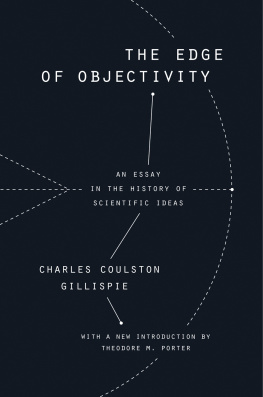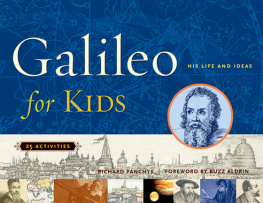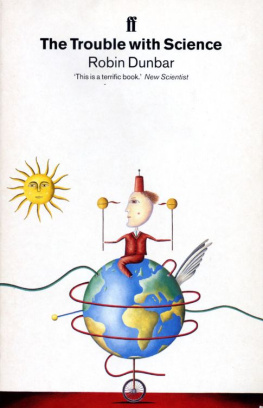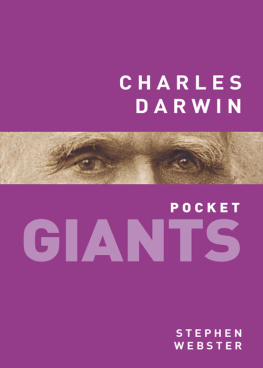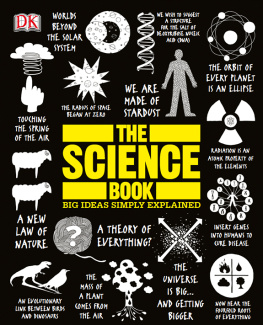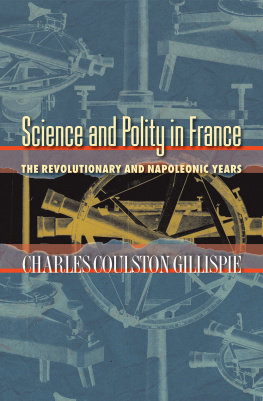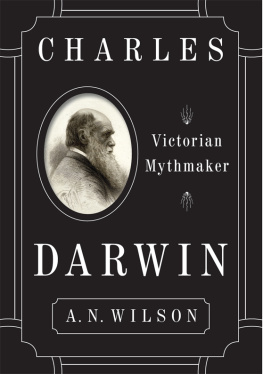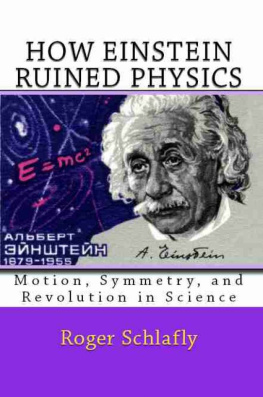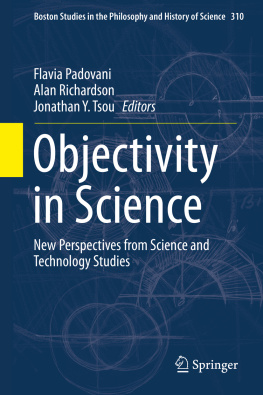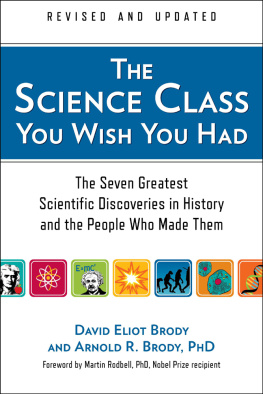
THE EDGE OF OBJECTIVITY
AN ESSAY IN THE HISTORY OF SCIENTIFIC IDEAS
BY CHARLES COULSTON GILLISPIE
With a new introduction by Theodore M. Porter

PRINCETON, NEW JERSEY
PRINCETON UNIVERSITY PRESS
Copyright 1960 by Princeton University Press
Copyright renewed by Princeton University Press, 1988
Preface copyright 1990 by Princeton University Press
Introduction to the New Paperback Edition copyright 2016 by
Princeton University Press
Published by Princeton University Press, 41 William Street
Princeton, New Jersey 08540
In the United Kingdom: Princeton University Press
6 Oxford Street, Woodstock, Oxfordshire, OX20 1TR
All Rights Reserved
Tenth paperback printing and
first printing with the new preface, 1990
First printing of the new paperback edition,
with a new introduction, 2016
L.C. Card 60-5748
Cloth ISBN: 978-0-691-07952-3
New Paperback ISBN: 978-0-691-17252-1
Printed in the United States of America
Printed on acid-free paper
1 3 5 7 9 10 8 6 4 2
To the Undergraduates of Humanities 304 Who in 1956, 1957, and 1958 responded with charm and forbearance to the presentation of this history by the spoken word, and who by discussion brought about its evolution to the present form,
This reduction of our dialogue to a book is dedicatedin particular appreciation of the engaging complements of curiosity and skepticism which stimulated even while restraining the authors more immoderate enthusiasms.
Princeton, June 1959
CONTENTS
INTRODUCTION TO THE
NEW PAPERBACK EDITION |
Preface
THE PUBLISHER thinks that The Edge of Objectivity needs a new suit of clothes on its thirtieth birthday, and has asked for a preface to say how the work looks to me now that it has to face up to a second generation of readers. Naturally, I am delighted that the book and its author are alive, and apparently well, and I shall do my best to look at it objectively.
The story begins with Galileo and the law of falling bodies. If I were rewriting it now, the opening scenes would still lie in Italy, but farther back, with the enterprises of a Brunelleschi, a Leonardo da Vinci, a Michelangelo, a Vasco da Gama, a Christopher Columbus. Theirs were doings animated by the same instinct that later formed a Galileo, namely, that knowledge finds its purpose in action and action its reason in knowledge, that if a problem can be solved, it should be solved, that if something can be done, it should be done. It has come to be my opinion that those behavior patterns, rather than the philosophical influence of Platonic idealism (which should not be eliminated from consideration, however, but only from preeminence) were what made the culture of the Renaissance in Italy the matrix wherein ancient and scholastic learning and technique were converted into modern science and engineering.
The persons just named include two voyagers, for a place in such a history should certainly be made for the expansion of the arena of science beyond the spherical triangle bounded in the fifteenth century by the Adriatic, the Portuguese coastline, and the Irish Sea. Clearly, the voyages of discovery then initiated a process of geographical and political dynamism that eventually acquired the vis viva to carry spacecraft to the moon. What relates the early voyages and their sequels to the history of science is that they were bearers of the civilization which through science came to dominate the world, at least till yesterday, for good and for ill. Further, what differentiates them from the random travels of antiquity, and of other civilizations, which produced only adventure, legend, or commerce, is that they were always involved with, though not perhaps motivated by, the problem of how the world is madein a word (again), with knowledge. It would not be practical for me to write that book now, however, and this one will have to stand on its own feet, within its boundaries of intellectual history.
When it was published, in 1960, I made bold at the beginning of the bibliographical essay to express a hope that it might help to encourage the development of a professional approach to the history of science. It has since become apparent that my book was an early instance of such a movement already under way, for clearly the growth in range and sophistication of scholarship has proved much greater and more rapid than anyone then engaged in the subject could have foreseen. Even more clearly, its development has gone far beyond anything that could be attributed to the influence of any particular item in the literature, including this one.
Something may be said about the juncture, however. Those of us who were then writing on the subject at the outset of our own careers made up the first generation of scholars to devote themselves wholly to the history of science as a specialty in itself, one comparable to art history, for example, or (as I suggested at the time) to philosophy of science. An important literature already existed, of course, going back to the eighteenth and even to the seventeenth centuries. In large part, its content was philosophical, and its character programmatic, not to say prescriptive. Examples are the writings of Auguste Comte, Pierre Duhem, and Ernst Mach. Contributions of another sort derived from avocations of scientists themselvesDelambre on the history of astronomy, Chasles on the history of geometry, Sachs on the history of botany. There was also a strong philological element, particularly when the question concerned antiquity. Even George Sartons work consists mainly of a summons to the subject and the provision of bibliographical tools. All those approaches have their distinctive merits, of course, and their limitations.
Only in the time when this book was being written had scholars begun to incorporate the subject into the discipline of professional historiography, and only in the 1950s were formal courses of instruction beginning to be offered in colleges and universities. Students at the undergraduate level came in large part from the sciences and from engineering. It was from such a course of lectures that The Edge of Objectivity derived. At the same time, or soon after, advanced students in certain graduate programs began to receive training for the doctorate with a view to becoming historians of science on purpose, instead of by personal or professional accidents of the sort that had led their teachers at an early stage of careers already under way to the opportunities that the subject affords.
The bibliographical essay also tells how, when those fortunate accidents occurred in the late 1940s and early 1950s, the work of Alexandre Koyr on Galileo offered us a model of what exciting interest the critical history of scientific ideas might hold.(1936), but somehow Koyr imparted a greater impetus to our thinking. So stimulating was his example, and so austere his taste, that one can only regard the influence as fortunate, although there have been critics who thought his mode of treatment over-intellectualized. Perhaps one might apply Comtes law of the three stages of development in science to its historiography: theological in infancy, metaphysical in youth, positive in maturity. If so, Koyrs appeal and its reflection in my book might be assigned to a moment of late youth, in the life of its author and of the discipline.
When the notion of reissuing this work arose, the publisher also asked, very reasonably, whether the bibliographical essay might be revised and brought up to date. Embarrassments of two sorts prevent my acceding fully to that request. The first is relatively trivial, and is that the bibliography was never intended to be exhaustive, even of the resources available to scholars in 1960. It pretends to be no more than a critical account of writings that I had found most suggestive in composing the book. That modest purpose would be lost to view in a revision. The second difficulty is insurmountable. Such has been the activity of scholarship in the intervening three decades that a review of the literature relevant to the topics discussed would be unmanageable in scale. A bibliographical essay adequate to the work on the career of Newton, for example, would be several times longer than the chapter treating his life and physics in the pages that follow. Readers wishing to pursue this, or any other topic I discuss, may consult the articles devoted to the appropriate figures in the
Next page
